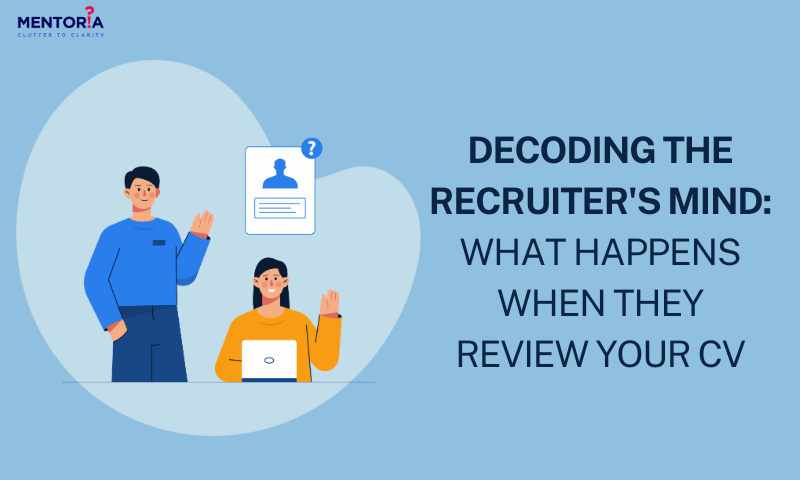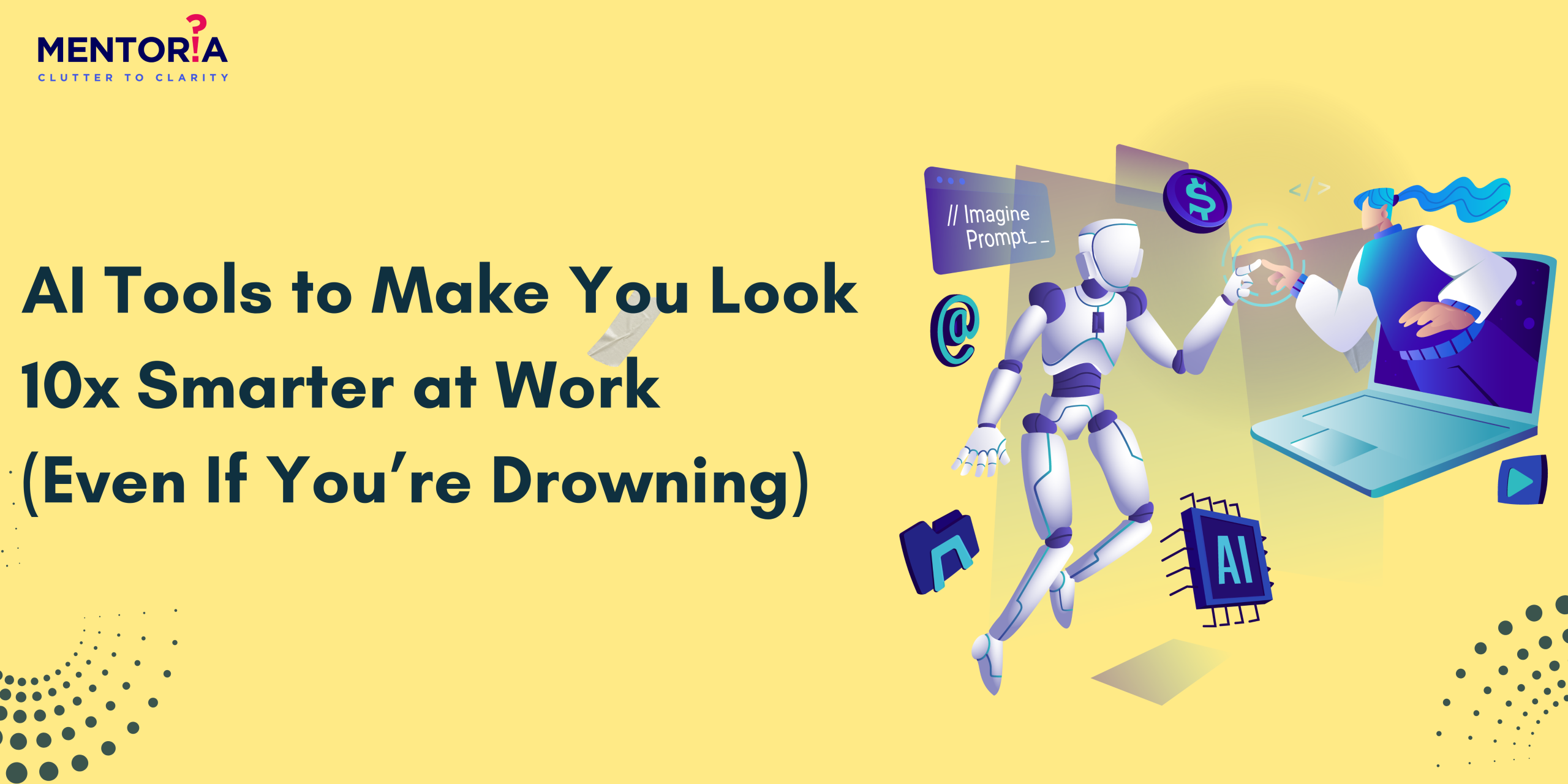Decoding The Recruiter’s Mind: What Happens When They Review Your CV

Ever wondered what’s cooking in the minds of recruiters when they sift through piles of CVs (Curriculum Vitae) to find that perfect match for a job? The process might seem like an enigma, but we are here to spill the beans and let you in on the secret. Think of it as a backstage pass to a recruiter’s thought process – the good, the bad, and the sometimes downright baffling. You see, recruiting isn’t just about finding someone with the right skills and qualifications; it’s about connecting the dots to create the perfect puzzle that is your team. Whether you’re a job seeker looking to up your CV game or just plain curious about what happens behind closed doors in the hiring world, this is the place for you.
The Initial Glance
Imagine a recruiter’s desk piled high with stacks of CVs. As they begin their journey through this CV maze, what goes through their mind? Well, the first impression counts, and it’s made in just a few seconds. Here’s what’s happening during that lightning-fast initial glance:
- Formatting Matters: Recruiters appreciate a clean, well-organised CV. Messy formatting can be an immediate turn-off. Make sure your CV is visually appealing and easy to skim through. Michelle Willmot, a Recruitment Resourcer at Be, advises that CVs should be kept as concise as possible, emphasising that they should not resemble a novel.
- Relevant Job Title: The job title at the top of your CV should align with the position you’re applying for. It helps the recruiter quickly understand if you’re a potential match.
- Years of Experience: Recruiters look for your years of experience to gauge if you fit the role’s requirements. If it’s too little or too much, they might move on quickly.
- Company Recognition: Well-known companies or organisations you’ve worked for catch their eye. It can be a strong indicator of your background.
Digging A Bit Deeper
Once your CV passes the initial glance, it’s time for a more thorough scan. Recruiters are now searching for specific details that could make or break your chances:
- Key Skills: They’re on the hunt for keywords relevant to the job. Highlight skills and qualifications that match the job description to stand out.
- Career Progression: Your work history should demonstrate growth and progression. Recruiters like to see that you’ve climbed the career ladder and taken on increasing responsibilities.
- Gaps and Job Hopping: Red flags include unexplained gaps in your employment history or frequent job changes. Be ready to provide explanations if necessary. As per Hays, career breaks are fine, as long as you can talk to the interviewer about how you kept yourself busy.
- Quantify Achievements: Specific accomplishments and numbers (e.g., “Increased sales by 30% in Q2 2022”) are golden. They add credibility to your claims.
What Your CV Says About You
Your CV isn’t just a list of past jobs; it’s a story about your professional life. Recruiters dive deeper to uncover the hidden clues about who you are as a potential employee:
- Attention to Detail: Spelling errors, typos, or inconsistent formatting can suggest a lack of attention to detail. Proofread your CV meticulously.
- Culture Fit: Your hobbies, interests, and volunteer work can give recruiters insights into your personality and whether you’d be a good fit for the company culture.
- Continued Learning: Mentioning courses, certifications, or workshops you’ve completed shows your commitment to personal and professional growth.
- Online Presence: In the age of social media, recruiters might check your LinkedIn profile. Make sure it’s up to date and presents you in a professional light.
The Cover Letter Connection
While your CV does the heavy lifting, the cover letter adds a personal touch. Recruiters often read it to get a sense of your motivation and enthusiasm:
- Alignment with Job: A well-crafted cover letter demonstrates that you’ve done your homework and understand the role and the company’s values.
- Storytelling: It’s an opportunity to share anecdotes and stories that highlight your skills and experiences. Engage the recruiter with your narrative.
- Attention to Detail (Again): A typo in your cover letter is just as off-putting as one in your CV. Double-check for errors!
The Culture Fit Maze
Now, let’s talk about something often underestimated: cultural fit. Recruiters aren’t just matching skills and experience; they’re also seeking candidates who align with the company’s culture:
- Values Alignment: Companies often have core values they hold dear. Recruiters look for evidence that you share these values.
- Team Dynamics: Will you thrive in the existing team? Recruiters assess your potential to collaborate effectively with coworkers.
- Adaptability: They evaluate if you can adapt to the company’s work style and environment. Are you flexible and open to change?
- Passion and Enthusiasm: It’s not just about doing the job; it’s about being excited to do it. Show your enthusiasm for the role and the company.
The Soft Skills Search
In the world of recruitment, soft skills are the X-factor that can set you apart from other candidates. While hard skills are essential, soft skills like communication, teamwork, and adaptability are equally crucial:
- Communication Skills: Effective communication is vital in any role. Highlight instances where you’ve demonstrated excellent communication, whether through presentations or written reports.
- Leadership Qualities: Even if you’re not applying for a leadership role, showcasing leadership skills is a plus. It indicates your potential for growth within the organisation.
- Problem-Solving Abilities: Recruiters love candidates who can navigate challenges with creative solutions. Share examples of times when you’ve solved complex problems.
- Emotional Intelligence: The ability to understand and manage emotions is highly valued. Illustrate how your emotional intelligence has positively impacted your work.
However, overused soft skills should be avoided as per Agata Kosma, Recruiter at EPAM. If you find it challenging to provide descriptions of your personality traits beyond stressing your resilience and amiability, it may be advisable to omit this section. Rest assured, during the interview, the recruiter will naturally assess your soft skills.
The References Game: Who Can Vouch For You?
References are the final piece of the puzzle. Recruiters may contact your listed references, so it’s crucial to select them wisely:
- Professional References: Choose individuals who can speak to your work ethic, skills, and character. Former supervisors, colleagues, or mentors are ideal choices.
- Notify Your References: Always inform your references that you’ve listed them. It’s a courtesy and ensures they’re prepared if a recruiter contacts them.
- Keep It Updated: If you’ve been using the same references for a while, check in with them periodically to ensure they’re still willing to vouch for you.
What Happens After CV Evaluation
Once your CV has been evaluated, recruiters face the challenging task of making a decision. Here’s what’s happening behind the scenes:
- Shortlisting: Recruiters create a shortlist of candidates who meet the job requirements and cultural fit criteria. Congratulations if you make it to this stage!
- Interview Prep: Recruiters may conduct preliminary interviews or send your CV to the hiring manager for further assessment.
- Feedback: Unfortunately, not everyone can move forward. If you receive a rejection, it’s often due to a lack of alignment with the job’s requirements or culture, not a reflection of your worth.
Mentoria’s Secrets To CV Success
Each job posting is unique, and what might catch a recruiter’s eye for one position could be different for another. So, tailoring your CV to the job description, highlighting your relevant skills and experiences, and crafting a compelling narrative about your career journey are keys to success.
And if you ever find yourself in need of expert guidance to navigate this intricate world of CVs and job applications, Mentoria is here for you. Our team of seasoned career advisors knows the ins and outs of the recruitment process. They can provide you with personalised strategies to make your CV shine and offer insights into what recruiters are really looking for. Whether you’re just starting your career journey or aiming to take the next big step, Mentoria’s expertise can be your secret weapon.









